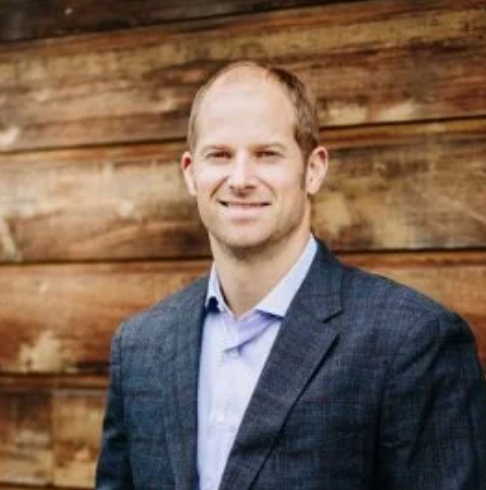We find ourselves today at a rare moment of perfect uncertainty.
Nothing is harder to deal with. Nothing rattles the nerves more. And nothing—absolutely nothing—is more likely to tempt even the most rational investor into making what I call The Big Mistake: abandoning the plan.
But here’s what I want to remind you:
We’ve been here before.
Almost exactly five years ago, we faced something even more terrifying. A global crisis of life and death. The pandemic stopped the world cold. Markets collapsed, fear took the wheel, and it felt like everything was breaking.
But those who held their ground—who stayed focused on their long-term plan—came through that storm. Not only intact, but positioned for great success. And they did so not because they had the perfect portfolio, or the best data, or some magical prediction.
They did it because they had conviction.
This letter is about conviction.
And to explore it, I want to share a few ideas with you through a simple lens: What if?
What if this uncertainty is actually normal?
We tend to think of volatility as the exception, not the rule. But the truth is, there is no such thing as a "normal" market. Every year brings surprises. Every few years, we get a full-blown panic.
What you’re feeling right now? That’s not a signal that something is broken. It’s a reminder that investing always comes with a price. And the price is uncertainty.
What if we are, in fact, properly diversified?
Sometimes diversification feels frustrating. Like it’s holding us back when certain parts of the market soar. Clients sometimes ask, "Why don’t we own more of [insert hot stock here]?"
The answer is simple: because we aren’t building a portfolio for last quarter. We’re building one for your entire future.
Diversification is not about maximizing this year’s return. It’s about creating long-term durability.
What if nobody knows what happens next?
We live in the golden age of hot takes. Everyone has a forecast. Everyone has a chart. Everyone has an angle.
But here’s what we know to be true: nobody—not the economists, not the pundits, not the influencers—actually knows where the market is headed next week, next month, or even next year.
And if nobody knows? Then reacting to the noise is not just unproductive. It’s dangerous.
We have a plan. And when the news feels overwhelming, I often ask clients a simple question: How do you see this prediction as affecting your long-term plan?
That one question brings us back to center.
What if the most powerful thing I can offer you is not a forecast, but a relationship?
I’m not in the prediction business. I’m in the planning business. I’m in the stay-the-course-when-it’s-hard business. I’m in the don’t-let-you-blow-yourself-up-just-because-CNBC-told-you-to-be-nervous business.
That’s what this relationship is for.
It’s why we built your Goals Planning Statement (GPS). It’s why we meet. It’s why we rebalance when things feel strange.
My job is not to tell you what will happen. It’s to help you stay committed to what we already decided to do when you were calm, focused, and clear.
What if the key to investment success has nothing to do with markets, and everything to do with behavior?
You can’t control interest rates. You can’t control inflation. You can’t control elections or geopolitics or central banks.
But you can control what you do when the storm hits.
And in that moment—right now, in fact—the best thing you can do is stay connected to your plan.
Because reacting emotionally to short-term events has ruined more financial futures than any recession ever has.
What if patience and discipline are your greatest financial assets?
Every year on average, the market corrects. Every five or so years, we get a bear market. It’s the cost of admission to the long-term growth we seek.
The only way to receive the full return of the equity markets is to endure the full ride.
It’s not easy. But it works.
What if we see this moment not as a threat, but as an opportunity?
Corrections create opportunity. They allow us to rebalance, to reposition, and to invest into areas that have become undervalued.
What feels scary often turns out to be fertile ground.
That’s why we don’t run from volatility. We walk toward it—carefully, thoughtfully, and with a plan.
What if your greatest risk isn’t the market — it’s abandoning the plan?
The Big Mistake is almost always behavioral. It’s selling out at the bottom. It’s chasing the latest trend. It’s jumping ship because someone on TV sounded convincing.
That’s why we don’t make decisions based on emotions or headlines. We make decisions based on goals, timeframes, and values.
You’ve already done the hardest part: you’ve committed to a strategy. Now, our job is to stay with it.
Doing Nothing when everyone else is panicking is powerful
I know this moment is uncomfortable. I know it can feel like doing nothing is being passive. But it’s the opposite.
Doing nothing when everyone else is panicking is one of the most powerful financial actions you can take. It requires courage. Conviction. And trust.
And that’s why I’m here.
I want you to know that our team is watching everything. We are reviewing portfolios, assessing opportunities, and making sure you stay aligned with your goals.
But most importantly, we are not reacting emotionally.
We are holding the line.
Because you deserve someone who stands strong when things feel uncertain.
And five years from now, when we look back on this moment, I want you to say: “I stayed the course. And it made all the difference."
--
Ben Beck is Managing Partner & Chief Investment Officer at Beck Bode, a deliberately different wealth management firm with a unique view on investing, business and life

 Benjamin Beck, CFP®
Benjamin Beck, CFP®